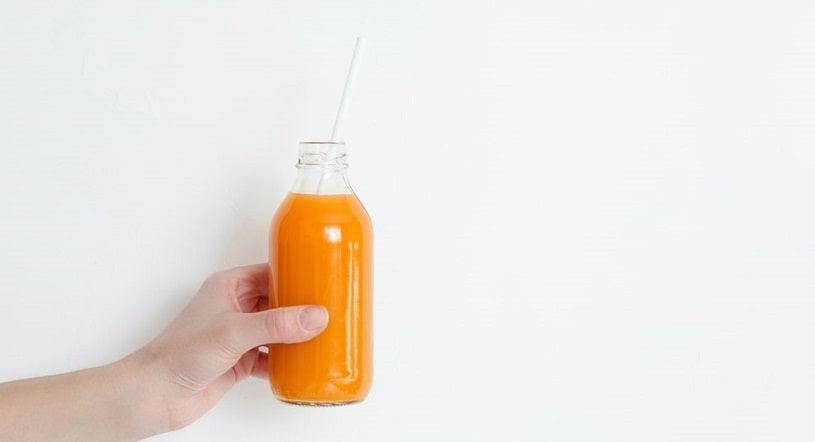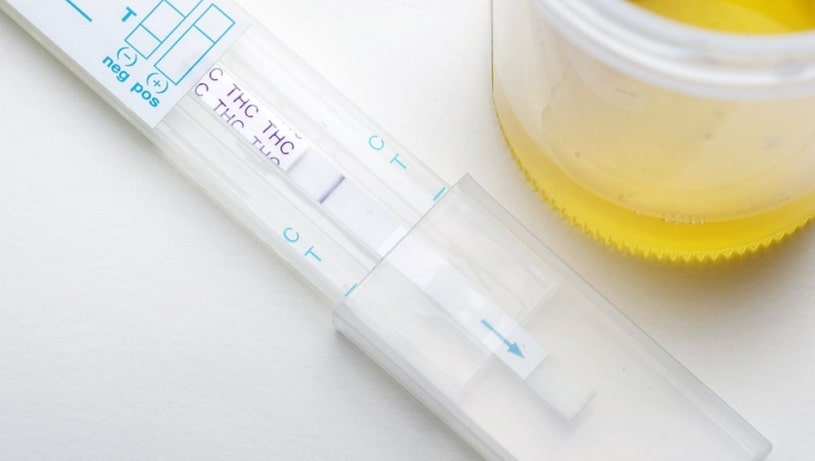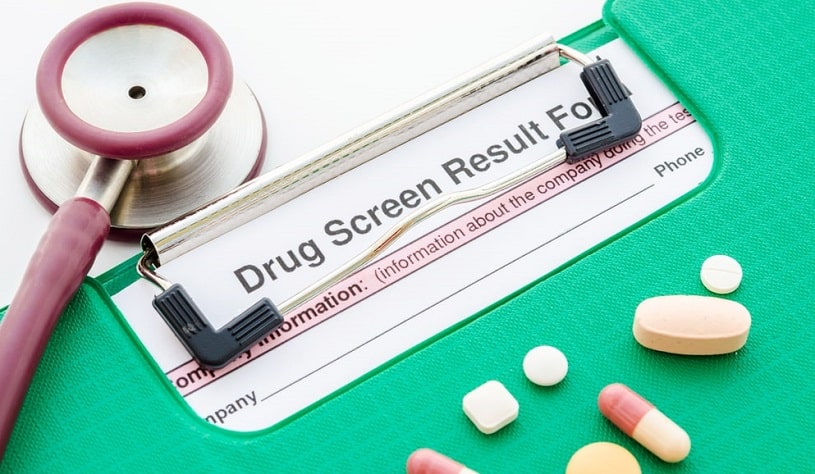Drug addictions get in the way of everyday life, and for various reasons, an addict may choose to detoxify. While they can opt for medical detoxification at professional centers, independent sellers also advertise detox kits to help flush the drug from the system.
Table Of Contents:
This article will discuss these kits and what they contain, and what they are used for. Are detox kits legal to use before a drug test? This will answer all those questions and more.
What Are Detox Kits?
A drug detox kit is a product sold to detoxify or cleanse the system of drugs intended to be used at home. They may also be marketed as cleanses or full-body detoxifying packages.
A detox cleanse kit will usually contain a pill or liquid that the individual is meant to drink that is advertised to clear the body of a specific substance.
Detox kits for THC and marijuana are perhaps the most popular ones on the market. A full-body detox kit can usually be found for sale online or at pharmacies and other stores.
Components of a Detoxification Kit
A detox cleanse kit will typically be sold as either a pill or a detox cleanse drink that contains numerous ingredients that are advertised as being able to hasten the removal of a certain substance from the system.
Depending on the kit in question, the ingredients may differ. However, in many cases, they contain a combination of herbs, plants, vitamins, and minerals. These can include components such as guarana, green tea, aloe vera, ginger root, vitamin B, and vitamin C, which are meant to convince the user that the product will actually flush away toxins.

While none of the big pharmaceutical players are involved in making these, some manufacturers make detox kits and include home drug test kits to be used after the detoxification period.
Detox Kit Uses
When individuals buy these kits aimed at specific drugs, such as a THC detox kit or a weed detox kit, they hope that these products will help them flush their system of a particular substance. However, some people may use the drug to rapidly detoxify ahead of a urine drug test. It should not be the goal of using a kit or for detoxification in general.
Based on this, the intended use for one of these kits is to perform home detoxification instead of medical detoxification. For example, a person struggling with an addiction will purchase a full-body detox kit as a cheaper alternative to a professional detox center.
While a kit might contain many natural ingredients that usually pose no harm, it is not a superior option to medical detox. The withdrawal period that addicts can go through when abstaining from a drug is uncomfortable and can be dangerous in many instances, which is a risk that is mitigated when receiving supervised medication-assisted detoxification.
The Legality of Using a Detox Cleanse Kit Before a Drug Test
It is a sad reality that many people who purchase these kits do so to pass a drug test that they may have coming in a few days. Unfortunately, they tend not to have any intention to quit the drug they are abusing once they have passed their urine test and simply want to use a detox kit to cheat.
While this is why many purchase these kits, many individuals simply want to use them as a part of home detox, and some companies recognize this. As a result, it is easy to see two distinct kinds of kits available in the market today. Some are from manufacturers that make claims about how their product only temporarily cleanses the body of illegal substances for about a day or two, making it clear that these are only intended for attempting to cheat tests.
While there is little regulation around the manufacture of detox kits, and using these products for home detoxification is not illegal, using one of these kits to defraud a drug screening test is illegal, depending on the state.

About 15 states already have laws in place that can punish defrauding a drug test with either a fine or prison time. These states include Virginia and Florida. The risks of continuing to abuse a drug paired with the legal implications of defrauding a drug test show that the best way to pass a drug test is to decide to abstain from the drug entirely. Using a kit is not worth the potential time that one may face in prison.
Dangers of Detoxification Kits
There are a lot of dangers to point out to anyone thinking of using these products. The threats come from two angles: the first being the use of the kit itself, which may contain substances that might be harmful to the body, and the second being the dangers of home detoxification itself.
A case report from 2011 discussed a man who suffered a psychotic episode following the use of a weed detox kit, despite no family history of psychiatric illness. In addition to that, several of the ingredients listed on the specific weed detox kit have been shown to cause liver dysfunction, which was something that he presented with, considering he had abnormal levels of liver enzymes on admission.
It clearly shows that there is a risk in consuming these kits blindly. Although the manufacturers try to push the components as all-natural, which they typically are, it doesn’t necessarily mean they are safe to consume at all doses. As demonstrated by that case, there is the risk of allergic reactions, hepatotoxicity, and rare complications such as psychosis.
The dangers of attempting to detoxify at home with something such as a THC detox kit should not be understated. Depending on the severity of the addiction, the withdrawal symptoms can potentially be fatal, and such eventualities need to be managed in a capable center.
When withdrawal symptoms get severe enough, an addict is likely to relapse very hard, which is a situation that can be controlled in a professional center. Unfortunately, this kind of relapse can result in overdose in many cases. It makes it evident that a detox kit does not serve as a cure for addiction as they provide no means to stop the drug use, unlike a treatment program.
Detox Kits vs. Medical Detoxification
For many people, the idea of using a weed detox kit at home is a lot more accessible than undergoing medical detoxification due to the fact they can do it in the comfort of their home and at a fraction of the cost.
However, the truth is, they do not solve the problem, which is a substance use disorder, and only provide the addict with a way to bypass the consequences of their addiction by defrauding drug screening. With the dangers of using these kits without proper knowledge of their components and their dosages, they are not worth the supposed benefits.

Undergoing medical detoxification provides a safe environment to experience withdrawal, with trained staff available to supervise the patient in case of complications. In addition, medication is given to ease the withdrawal period. In most cases, medical detox can be used to completely eliminate withdrawal symptoms.
The proper process to treat a drug addiction is to undergo supervised medical detoxification and follow it up with a proper rehabilitation program. The only way to pass a drug test with certainty each time is to simply stop using a drug.
Pass a Drug Test by Beating Drug Addiction
Using a home THC detox kit does not guide an addict down the road to recovery. It is only a dangerous, temporary, and potentially ineffective substitute to proper medical detoxification. It is essential for an individual dealing with addiction to realize that even with successful home detoxification, much psychological work needs to be done to prevent relapse and set the person up for a drug-free life.
The only guaranteed way to pass a drug test is to beat an addiction entirely. The best way to do that is to undergo medical detoxification, IV therapy detox and professional rehabilitation after that. With the determination to get better and leave the dependence behind, recovery will be a step closer.
Hope Without Commitment
Find the best treatment options. Call our free and confidential helpline
Most private insurances accepted
Page Sources
- Mittal, M. S., Kalia, R., & Khan, A. Y. (2011). A case of psychosis after use of a detoxification kit and a review of techniques, risks, and regulations associated with the subversion of urine drug tests. The primary care companion for CNS disorders, 13(5), PCC.11r01178. https://www.ncbi.nlm.nih.gov/pmc/articles/PMC3267515/
- Bartter, T., & Gooberman, L. L. (1996). Rapid opiate detoxification. The American journal of drug and alcohol abuse, 22(4), 489–495. https://pubmed.ncbi.nlm.nih.gov/8911587/
- Virginia Law Library, 18.2-251.4. Defeating drug and alcohol screening tests; penalty., 2001, https://law.lis.virginia.gov/vacode/title18.2/chapter7/section18.2-251.4/
- The Florida Legislature, The 2021 Florida Statutes, 2021, http://www.leg.state.fl.us/statutes/index.cfm?App_mode=Display_Statute&Search_String=&URL=0800-0899/0817/Sections/0817.565.html




